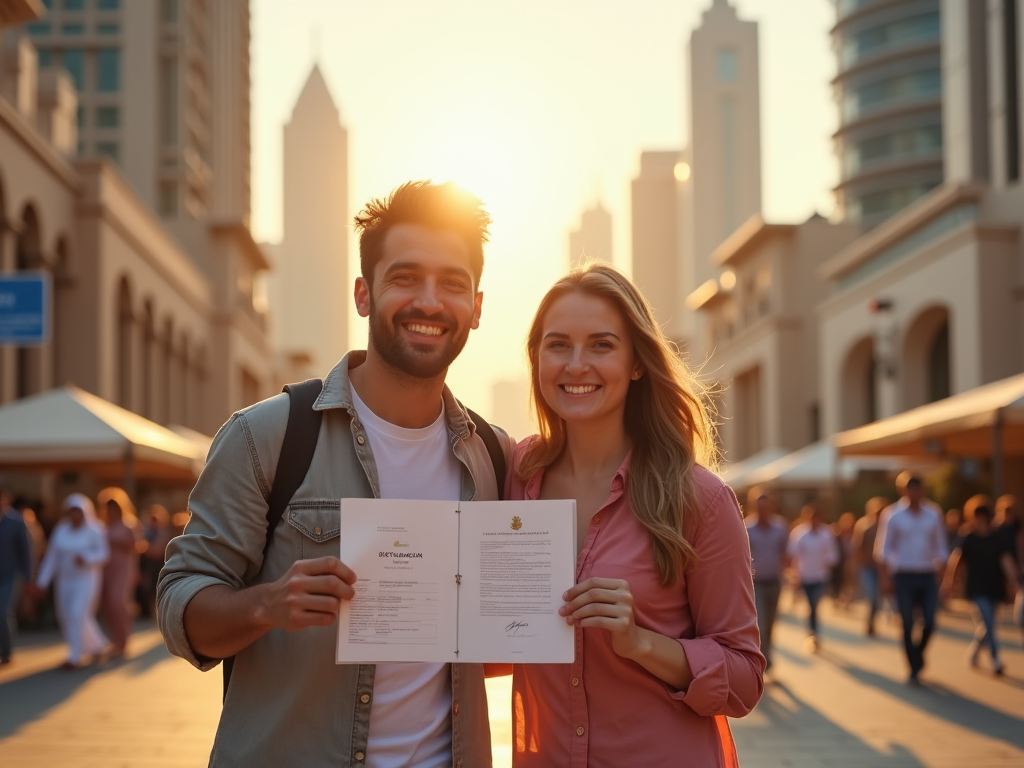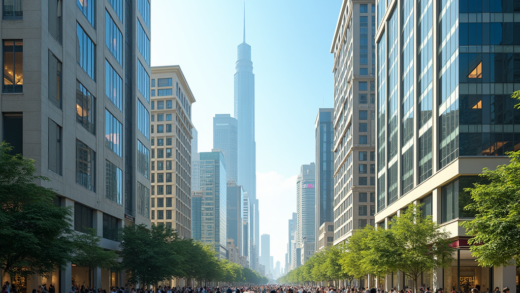Obtaining a residence visa in Dubai is an essential step for anyone looking to live and work in this vibrant city. This guide outlines the complete process, requirements, and tips necessary for securing your residence visa smoothly. Whether you’re an expatriate seeking employment, a business owner, or someone planning to retire in Dubai, understanding the visa provisions is crucial. In the following sections, we will delve into the types of visas available, the application process, costs involved, and much more.
Types of Residence Visas in Dubai

Dubai offers various types of residence visas, each catering to different needs and categories of residents. Understanding the specific visa that applies to your situation is the first step toward obtaining residency. Here are the primary types of residence visas available in Dubai:
- Employment Visa: Provided by employers for foreign workers in the UAE.
- Investor Visa: Issued to individuals who invest a significant amount of money in Dubai’s economy.
- Family Visa: Allows residents to sponsor their family members for residency.
- Retirement Visa: Offered to expatriates aged 55 and above who meet the financial requirements.
- Student Visa: For individuals enrolled in educational institutions in Dubai.
Each visa category has its own rules and eligibility criteria, making it important for applicants to choose the correct type of visa based on their personal circumstances.
Application Process for a Residence Visa

The application process for a residence visa in Dubai consists of several crucial steps that need to be followed meticulously. Here’s how the application process typically unfolds:
- Determine Visa Type: Choose the specific type of residence visa relevant to your situation.
- Gather Required Documents: Collect necessary documentation, which may include your passport, medical fitness certificate, and proof of employment or investment.
- Submit Application: Apply through the appropriate channels, either online via the General Directorate of Residency and Foreigners Affairs (GDRFA) or through authorized typing centers.
- Pay Visa Fees: Fees vary depending on the visa type and processing speed. Ensure payment is made on time.
- Receive Approval: After processing, you will receive approval via email or in person, allowing you to proceed with obtaining the residency stamp.
It’s crucial to follow each step precisely to avoid any delays or complications in the visa process.
Required Documents for a Residence Visa
When applying for a residence visa in Dubai, specific documents are required for a successful application. The exact documents may vary based on the type of visa you are applying for, but the following is a general list of the necessary paperwork:
- Valid passport (with at least 6 months validity)
- Colored passport-sized photographs
- Health insurance coverage
- Medical fitness certificate from an approved center
- Proof of employment or investment, if applicable
- Marriage certificate or birth certificates for family sponsorships
Having all necessary documents ready when applying will expedite the process and minimize the chances of rejection or further scrutiny by the authorities.
Cost of Obtaining a Residence Visa
The cost associated with obtaining a residence visa in Dubai can vary widely depending on several factors, including the type of visa, processing time, and additional services required. Generally, applicants should expect the following costs:
- Application fee: Ranges from AED 200 to AED 500, depending on visa type.
- Medical fitness test: Approximately AED 300 to AED 700.
- Health insurance: Costs vary, generally ranging from AED 1,000 to AED 3,000 annually.
- Issuance of residency visa: Typically between AED 1,000 to AED 2,000.
It’s advisable to budget adequately for these expenses and to always stay updated on any changes to fees, as they can fluctuate.
Conclusion
Securing a residence visa in Dubai can be a straightforward process if the guidelines laid out in this comprehensive guide are followed diligently. Understanding the various visa types, the application process, required documentation, and associated costs all play a critical role in ensuring a smooth experience. By preparing adequately and staying informed, you can successfully navigate the complexities of obtaining residency in one of the most dynamic cities in the world.
Frequently Asked Questions
1. How long does it take to obtain a residence visa in Dubai?
The processing time can vary but generally takes about 2 to 3 weeks, depending on the visa type and the completion of documentation.
2. Can I work in Dubai with a residence visa?
Yes, if you have an employment visa, you are allowed to work in Dubai. However, other visa types may come with restrictions.
3. Is health insurance mandatory for a residence visa in Dubai?
Yes, having valid health insurance is a requirement for obtaining a residence visa in Dubai.
4. What happens if my residency visa application is rejected?
If your application is rejected, you will receive notification with reasons for the rejection, and you may reapply after addressing the issues.
5. Can I sponsor my family members for a residence visa in Dubai?
Yes, as a resident in Dubai, you can sponsor your spouse and children for a family visa, provided you meet the necessary financial requirements.



